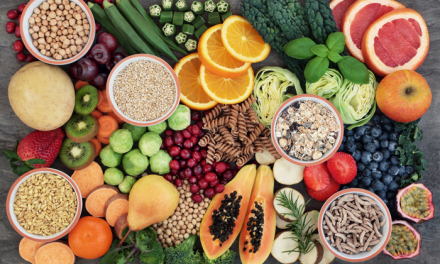On the one hand, everyone must have access to safe, diversified food in sufficient quantity, of good taste and nutritional quality, resulting from sustainable agriculture and, on the other hand, to an environment that facilitates favourable food choices. for health and the daily practice of physical activity while limiting behaviour
sedentary.
While recent studies show that overweight and obesity in both adults and children have stabilized, this stabilization is occurring at a level which, although not as harmful compared to that of many other European countries, remains too high. Nearly half of adults and 17% of children are overweight or obese in France today, with still very marked social inequalities. Other indicators are not developing favourably. The growth in the prevalence of type 2 diabetes continues; the practice of physical activity tends to decrease, particularly among women and children, and remains very insufficient. Sedentary behaviours have sharply increased over the past ten years. After having decreased at the beginning of the years 2000, the consumption of salt stagnates at a level much too high, that of sugar is too important while the consumption of fruits and vegetables and fibre is much too low.
The expectations of our fellow citizens are therefore high for the better nutritional quality of food. But beyond that, the consumer is also looking for local, seasonal or quality products, greater transparency. It is, therefore, a matter of promoting a diet rooted in the territories in connection with resilient agriculture geared towards agroecological transition. This approach requires a coherent approach to public action that puts into perspective all the issues associated with our food by relying on all the players and stakeholders within the food chain. Numerous actions will be initiated and continued to develop the food supply, fight against food insecurity and waste, promote the relocation of our food through the establishment of short circuits and proximity, and strengthen education to food and promote our exceptional culinary heritage.
Mindful eating: By taking your time and savouring each bite, mindful eating is an effective technique for learning to rediscover the flavours of food while reducing the proportion of foods absorbed during a meal.
Adopt chrono-nutrition: chrono-nutrition consists of eating in a certain way according to the different times of the day. For example, it is advisable to eat fatty in the morning, dense at noon and light in the evening. Over the long term, this technique helps you regain your healthy weight and improve your health.
Managing your meals: It is essential to be organized for optimal nutritional intake and avoid weight gain. Indeed, unbalanced meals are often due to improvisation, so it is recommended to plan the content of breakfast the night before and each morning what the meals of the day will consist of.
Be careful with cooking: to preserve all the benefits of food, it is preferable to cook at a low temperature below 100 ° C because the high temperature distorts the properties of the food. It is advisable to limit grilling, which contains a lot of free radicals. The microwave should also be avoided because it denatures the chemical form of food.
Eat well: basic nutritional needs.
The primary nutritional needs to know can be divided into two categories that we will develop below: macronutrients (proteins, lipids, carbohydrates) which provide energy, and micronutrients (vitamins, trace elements, etc.), which are essential for the assimilation, processing and proper use of macronutrients.
Macronutrients
The proteins
Proteins are essential for a balanced diet. They help the proper functioning of organs thanks to the amino acids of which they are made: isoleucine, leucine, lysine, methionine, phenylalanine, threonine, tryptophan, valine. Our cells need these eight essential amino acids, and the lack of just one of these amino acids blocks protein synthesis, which is essential for rebuilding our DNA.
Lipids
Lipids are the basis of the manufacture of all our cells, our hormonal system, and all of our cell membranes. They provide the energy necessary for the body to function and regulate multiple physiological functions. Omega 3s in food is essential for a good diet. You have to know how to choose your oil with quality fatty acids rich in monounsaturated (olive oil) and polyunsaturated (rapeseed oil) fatty acids.
Carbohydrates
Carbohydrates are just as essential for providing energy to our bodies. Food sources of carbohydrates are starches (cereals, legumes, potatoes, rich in starch), green vegetables, sweet products and fresh and dried fruits. The three types of carbohydrates are simple sugars, complex sugars, and fibre. It is best to avoid white sugar and brown sugar, which are refined and addictive. These are present in sweets, confectionery and sugary drinks.
Micro-nutrients
Food today is increasingly poor in micronutrients because of the cultivation methods (use of pesticides, fungicides, etc.), the food extraction methods (refining, high temperatures), the cooking methods ( microwave, frying) and preservation methods destroy these micronutrients. Therefore, these cannot be manufactured by the body and must be provided by a varied, balanced, and good quality diet.
Indispensable to the body, their deficiencies create imbalances responsible for many symptoms (inflammation, sleep disorders, memory disorders, mood disorders, digestive disorders). In addition, they protect us from free radicals.
nutritional quality
The primary antioxidant vitamins are vitamins A, E, C, which are contained in fruits, vegetables, green tea…
Vitamin A tones the eye area.
Vitamin C helps the body make collagen, which provides cohesion, elasticity and regeneration of connective tissue. It also affects the immune system and is present in the liver, brain and endocrine glands.
Vitamin E in vegetable oils plays a vital role on the membrane of the intestines, therefore in the digestive process. A powerful antioxidant, it synergizes with vitamin C.
As for other vitamins, group B vitamins are helpful for the nervous system; vitamin D enters into hundreds of functions in the body, vitamin K is essential for normal blood clotting and plays a role in bone consolidation.
Care should be taken not to consume too many grains and legumes, which in large quantities cause maldigestion and block the assimilation of nutrients due to the anti-nutrients they contain (lectins, phytates, saponins, etc.).





